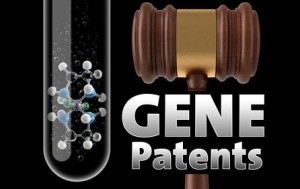Court rulings in several controversial patenting cases are largely consistent
Recent decisions from the U.S. Court of Appeals for the Federal Circuit (CAFC) offer some much-needed clarity in the controversial issues surrounding the legality of life sciences patents.
This will be of interest to pathologists and medical laboratory managers, because many clinical laboratories and pathology groups must pay royalties to patent-holders for rights to use the technologies. There are multiple legal cases winding their way through the federal court system, so legal decisions in these cases have the potential to change in status quo in patent law.
According to an article in Genetic Engineering News (GEN), the CAFC recently decided three important parallel cases pertaining to various areas of patent-eligible subject matter.
The cases are:
- Prometheus Laboratories v. Mayo Collaborative Services (Prometheus);
- Associates for Molecular Pathology v. U.S. Patent and Trademark Office, et al. (Myriad); and,
- Classen Immunotherapies v. Biogen Idec (Classen).
The method claims subject matter at issue in the three cases include personalized medicine diagnostic tools, therapeutic treatments, and DNA sequences.
“Mental Steps” Not Enough for Patentability
The appellate court’s decisions in all three cases are largely consistent and provide much needed clarity in this area of patent law, the article noted.
The three cases referenced above follow in the wake of Bilski v. Kappos [130 S. Ct. 3218, 561 US __, 177 L. Ed. 2d 792 (2010)] (Bilski). In that case, the U.S. Supreme Court indicated that the proper inquiry in method patent cases is focused on whether the claims cover abstract processes (unpatentable) or specific applications of processes (patentable), an article in Genomics Law Report (GLR) stated. The Bilski ruling validated the use of the machine-or-transformation test as an important guide to patent eligibility in the life sciences.

- Recent court decisions in three different cases offer much-needed—if limited—clarification in the area of life sciences patents. New court decisions hold the potential to change the way patents are issued for gene-based discoveries and molecular diagnostic technologies that may have applications in clinical diagnostics. (Photo by www.American.com)
A related story in GLR noted that the consistent point among all three cases is that “mental steps,”—such as reviewing, comparing, analyzing, screening, selecting, and determining—are not enough for patentability. Patent-eligibility requires at least one added step of tangible activity, GLR reported.
Prometheus: Diagnostic and Treatment Claims
In Prometheus, the Federal Circuit found that a medical treatment that results in a chemical or physical transformation of substances is patent-eligible, GEN reported. The court further found that a diagnosis that involves transformative purifications and analytical tests to determine the level of metabolites in a sample is also patent-eligible.
The Supreme Court granted certiorari review of Prometheus in June 2011. In early December the high court heard oral arguments in the case. Willingness to review the case signals the court’s interest in patent cases, an article in MedPage Today observed.
“The Supreme Court doesn’t decide that many patent cases and it doesn’t decide that many patent cases about genetics,” Chris Hansen, Senior National Staff Counsel at the American Civil Liberties Union, told MedPage Today.
Myriad: Genetic Diagnostic and Screening Claims
At issue in the Myriad case are two types of method claims. The first concerns diagnostic claims directed to comparing and analyzing DNA sequences for genetic diagnosis. The second issue addresses screening claims for identifying potential anticancer therapeutics.
In July 2011, the Federal Circuit reversed the lower court’s March 2010 decision. In the screening claims, the court found that “isolated DNA” and sequence-specific nucleic acid probes for detecting breast and ovarian cancer were patentable subject matter on the grounds the isolated molecules are “markedly different” and the claims included active transformative steps and involved more than an abstract mental step, reported GEN.
In the diagnostic claims, the court applied the machine-or-transformation test. It then ruled unanimously that merely comparing and analyzing do not make the claims patentable. It found that the claims were directed to an abstract mental process that did not include any transformative step.
On December 7, 2011, the Association for Molecular Pathology, et al., filed for review by the Supreme Court. The petition is scheduled for conference on February 17, 2012.
Classen: Diagnostic and Immunization Claims
The decision in Classen is consistent with the Prometheus and Myriad decisions. The case covers two types of claims:
- Claims directed to immunizations on a schedule that presented the lowest risk of chronic immune-mediated disorders; and
- Claims directed to evaluating immunization schedules that minimize the risk of an autoimmune disorder.
On remand, the Federal Circuit held in August 2011 that the method claims in Classen reciting the physical step of immunizing a mammalian subject were patent-eligible, even though other evaluating parts of the claims may have included a mental step, GEN reported. The court based its reasoning on the fact that the immunizing step met the transformative test under Prometheus because it was directed to a specific, tangible application.
The findings in these three cases are generally consistent with each other and with the expectations of the biotechnology industry. If the Supreme Court grants Myriad’s petition for review, clinical laboratory managers and pathologists can expect further guidance in the evolving area of patentability of process claims. However, as the stakes involved grow increasingly higher at an accelerating pace, it may well fall to Congress to provide more clarity regarding patentability in the life sciences.
—Pamela Scherer McLeod
Related Information
Classen: Has the Federal Circuit Lost Interest in Patentable Subject Matter?
Gene Patent Case May Head to Supreme Court
Machine-Or-Transformation Test After Myriad: Implications To The Prosecution Of Process Claims
Federal Appeals Court Hears Arguments in the Myriad Genetics’ Gene Patent Case



